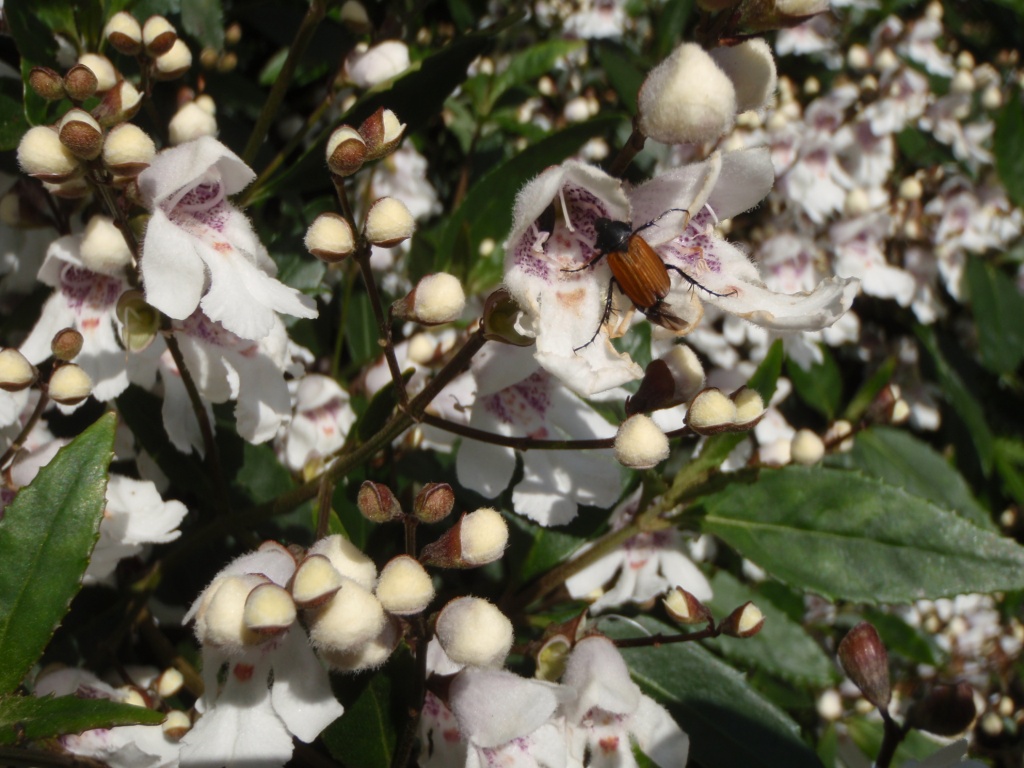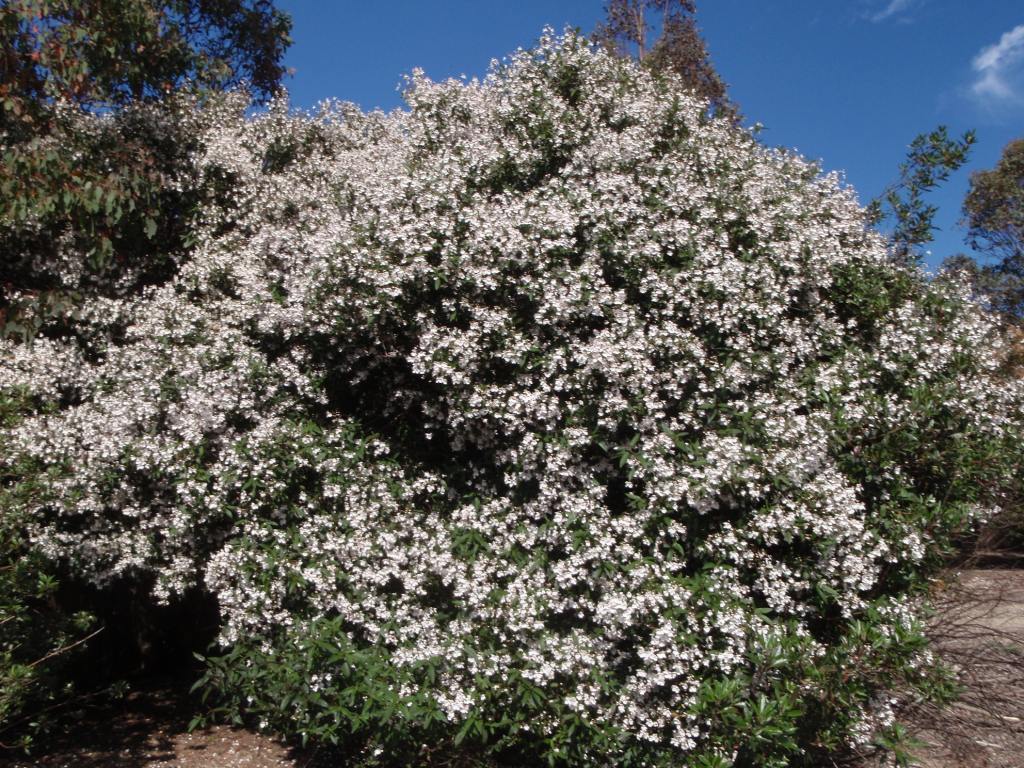Scientific Name: Prostanthera lasianthos
Common Name: christmas mintbush
Family Classification (Clade): Eudicots
Family: Lamiaceae
Form Description: Upright shrub to small tree with a bushy spreading crown when grown in the open.
Height (m): 2 – 6
Flowers: Prolific white or pale lilac spotted with deep purple.
Fruit: Nut – splits into four segments each with own seed at maturity – 4 together in “ice-cream cone”. Seed is slightly flattened, brown or grey and up to 2mm long; turns from green to grey when ripe.
Municipality
Plant Communities
Habitat Notes
Needs protection from strong winds. Margins of streams to sea level, abundant on mountain slopes in openings in wet forest.
Site Tolerance
Moist, Shady
Soil Tolerance
Fertile, Loam, Well-drained
Frost Tolerance
Hardy
General Notes
Fast growing. Useful as a screen plant if protected from strong winds. Prostantheras require full sun and excellent drainage. Even in ideal conditions they are not long-lived. To overcome the problem, the Australian National Botanic Gardens began, in the 1970s, to graft Prostanthera on to Westringia fruticosa rootstock. If grafting is not done, Prostanthera generally needs to be repropagated regularly. Bee attracting: flowers are a food source for native wasps and bees. Bird attracting.
Propagation Calendar
-
Flowering Month
Jan Feb Mar Apr May Jun Jul Aug Sep Oct Nov Dec -
Seed Collecting Month
Jan Feb Mar Apr May Jun Jul Aug Sep Oct Nov Dec -
Sowing Month
Jan Feb Mar Apr May Jun Jul Aug Sep Oct Nov Dec -
Cutting Month
Jan Feb Mar Apr May Jun Jul Aug Sep Oct Nov Dec
Propagation Method
Seed Information
Seed Collection
Can be grown from seed, with some difficulty. Can be collected close to maturity. Dry in a warm spot until seed is released.
Seed Treatment Notes
Use fresh seed but still difficult. It seems that in heavy seed crop years, low viability may result.
Germination Time
3-8 months
Cutting & Division Information
Can be grown from cuttings which may be slow to strike. Do not use mist as the cuttings may rot. Take short laterals with heels. Material is usually suitable for cuttings from February to July. Cuttings more likely to be successful from young plants.

